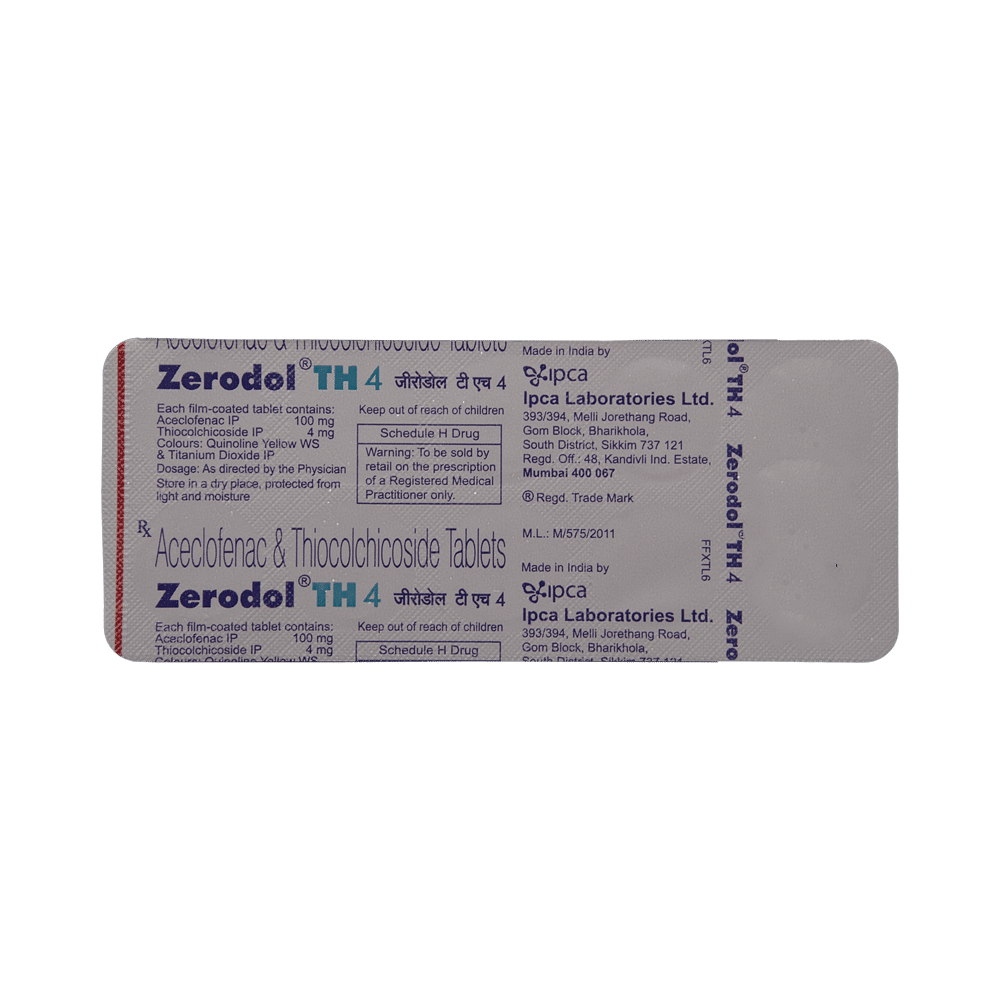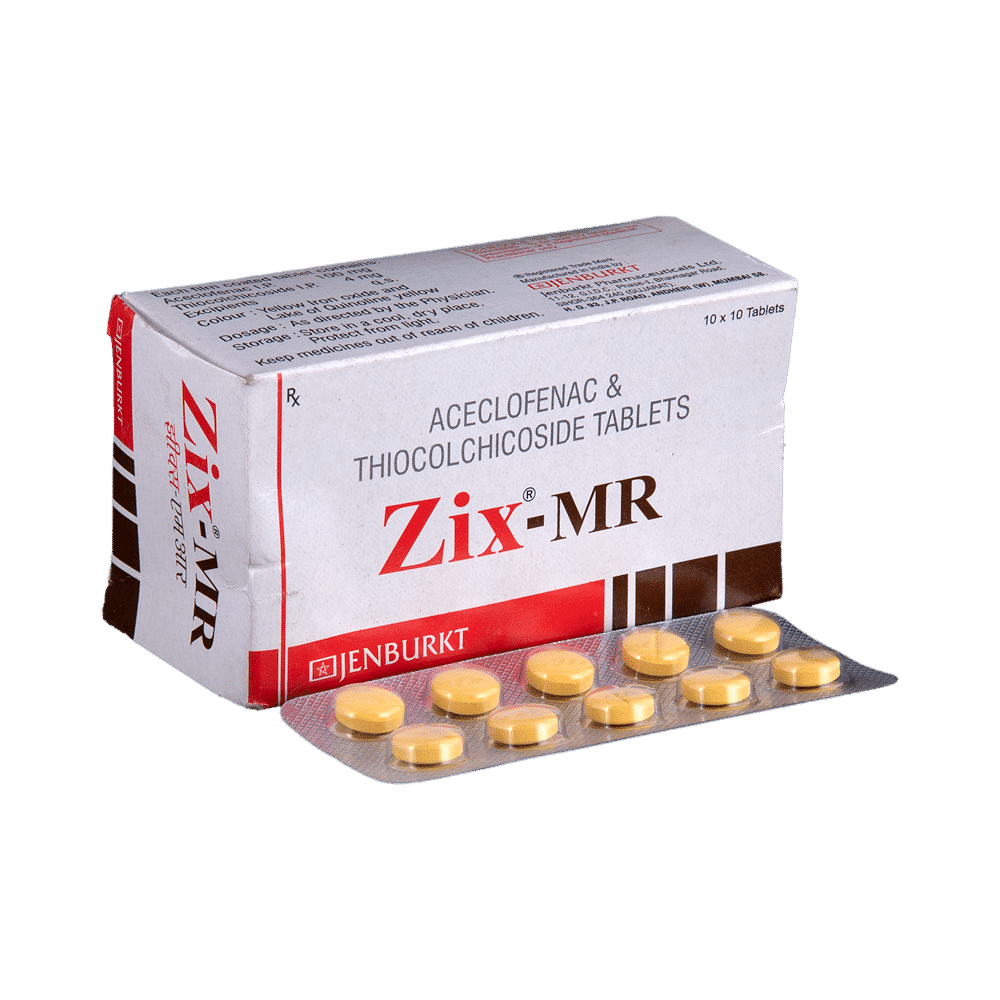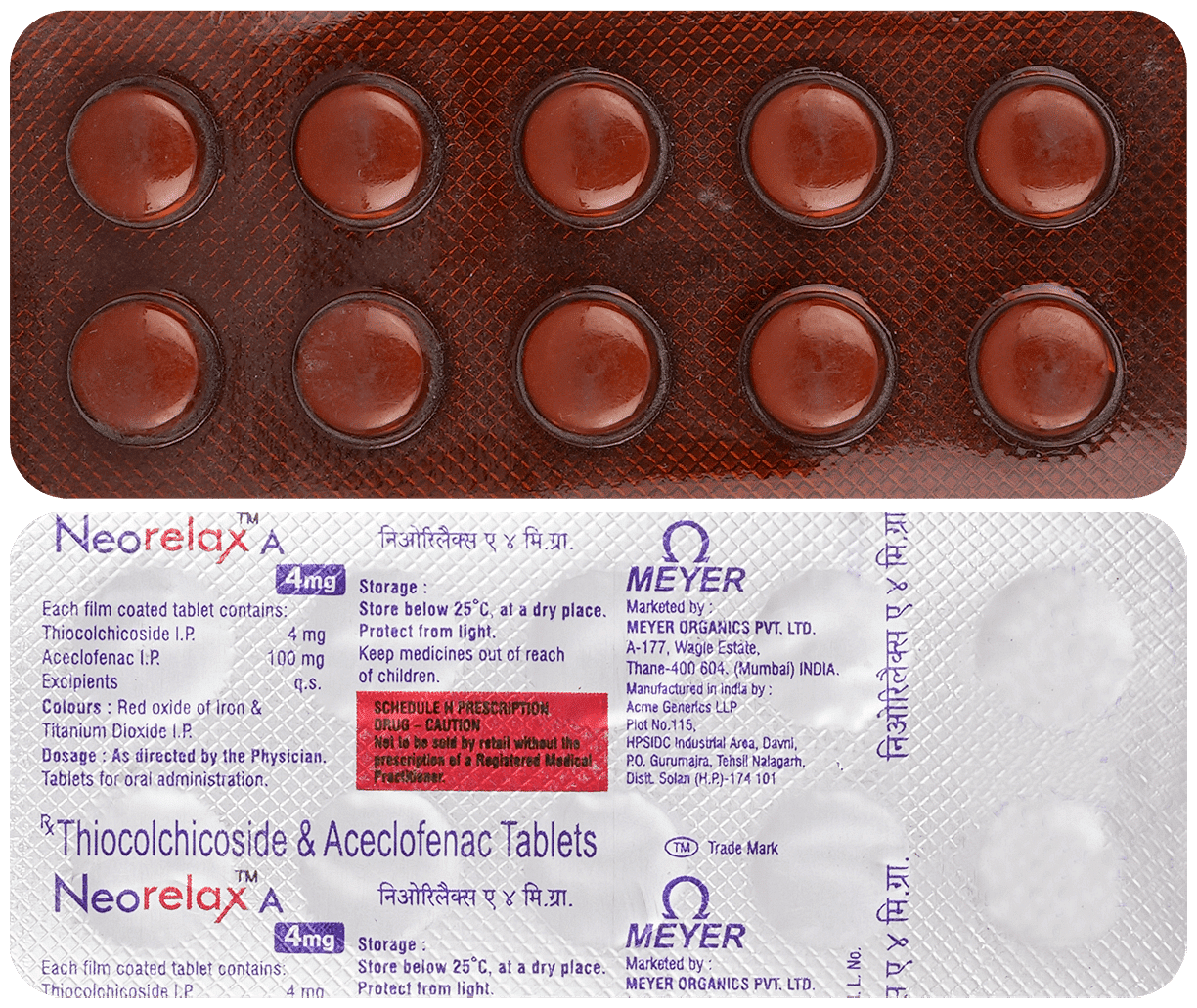
Thiofol A 4 Tablet
Manufacturer
Vibcare Pharma Pvt Ltd
Salt Composition
Aceclofenac (100mg) + Thiocolchicoside (4mg)
Key Information
Short Description
Thiofol A 4 Tablet is a combination medicine used in the treatment of pain due to muscle spasms. It improves the movement of muscles and provides relief from pain and discomfort associated with muscle spasms.
Dosage Form
Tablet
Introduction
Thiofol A 4 Tablet should be taken with food. This will prevent you from getting an upset stomach. You should take it regularly as advised by your doctor. Do not take more or use it for a longer duration than recommended by your doctor. Some of the common side effects of this medicine include nausea, vomiting, heartburn, stomach pain, loss of appetite, and diarrhea. If any of these side effects bother you or do not go away with time, you should let your doctor know. Your doctor may help with ways to reduce or prevent these side effects. The medicine may not be suitable for everybody. Before taking it, let your doctor know if you have any problems with your heart, kidneys, and liver. To make sure it is safe for you, let your doctor also know all the other medicines you are taking. Pregnant and breastfeeding mothers should first consult their doctors before using the medicine.
Directions for Use
Take this medicine in the dose and duration as advised by your doctor. Swallow it as a whole. Do not chew, crush or break it. Thiofol A 4 Tablet is to be taken with food.
Safety Information
Side Effects
No common side effects listed.
Alcohol Warning
It is unsafe to consume alcohol with Thiofol A 4 Tablet.
Breastfeeding Warning
Information regarding the use of Thiofol A 4 Tablet during breastfeeding is not available. Please consult your doctor.
Pregnancy Warning
Thiofol A 4 Tablet may be unsafe to use during pregnancy. Although there are limited studies in humans, animal studies have shown harmful effects on the developing baby. Your doctor will weigh the benefits and any potential risks before prescribing it to you. Please consult your doctor.
How it works
Thiofol A 4 Tablet is a combination of two medicines: Aceclofenac and Thiocolchicoside which relieves pain and relaxes the muscles.
Quick Tips
Thiofol A 4 Tablet helps relieve pain and muscle spasm that may occur due to strains, sprains, and muscle injuries. It is usually used along with rest and physical therapy. Take it with food to avoid an upset stomach. It may cause dizziness. Do not drive or do anything requiring concentration until you know how it affects you. Avoid consuming alcohol when taking Thiofol A 4 Tablet as it may cause excessive drowsiness.
Related Medicines

Zerodol TH 4 Tablet

Zix-MR Tablet

Neorelax A 4mg Tablet

Consace TH 100mg/4mg Tablet

Fenanix-T4 Tablet

Nacsol TH 100mg/4mg Tablet

Mathidol T 100mg/4mg Tablet

Thicoren AC 100mg/4mg Tablet

Allitose-T Tablet

Acepanac-TH Tablet
Frequently asked questions
What is Thiofol A 4 Tablet?
Thiofol A 4 Tablet contains two active ingredients: Aceclofenac and Thiocolchicoside. This medication is used to relieve muscle pain by relaxing muscles through the central nervous system and lowering chemical substances in the body that cause pain and inflammation.
Is Thiofol A 4 Tablet safe to use?
Thiofol A 4 Tablet is generally safe for most patients. However, some common side effects like nausea, vomiting, stomach pain, heartburn, diarrhoea may occur. If you experience persistent problems, inform your doctor.
Can I stop using Thiofol A 4 Tablet once my pain is relieved?
Thiofol A 4 Tablet is typically used for short-term relief and can be discontinued when the pain subsides. However, if your doctor has prescribed its continued use, you should follow their advice.
Can Thiofol A 4 Tablet cause dizziness?
Yes, using Thiofol A 4 Tablet may cause dizziness (feeling faint, weak, unsteady, or lightheaded) in some individuals. If you experience this, rest for a while and resume your normal activities once you feel better.
Are there any contraindications to using Thiofol A 4 Tablet?
Thiofol A 4 Tablet is not suitable for patients with known allergies to painkillers or components of the medication. Avoid it in individuals with a history of stomach ulcers, active or recurrent stomach ulcer/bleeding, and heart failure. Additionally, consult your doctor before using this medicine if you have kidney or liver disease.
Can Thiofol A 4 Tablet be taken with Vitamin B-complex?
Yes, combining Thiofol A 4 Tablet with Vitamin B-complex preparations is generally safe and can even help correct vitamin deficiencies contributing to your symptoms. However, always consult your doctor for guidance on the appropriate dosage.
Can Thiofol A 4 Tablet cause kidney damage?
Long-term use of Thiofol A 4 Tablet may lead to kidney damage. Prostaglandins, a protective chemical produced by healthy kidneys, are lowered when using this medication, increasing the risk of kidney damage over time. It is not recommended for patients with pre-existing kidney disease.
Will taking more Thiofol A 4 Tablet make it more effective?
No, increasing the dosage will not enhance its effectiveness. If your symptoms are worsening, seek medical advice to re-evaluate the situation and determine if adjustments are needed.


